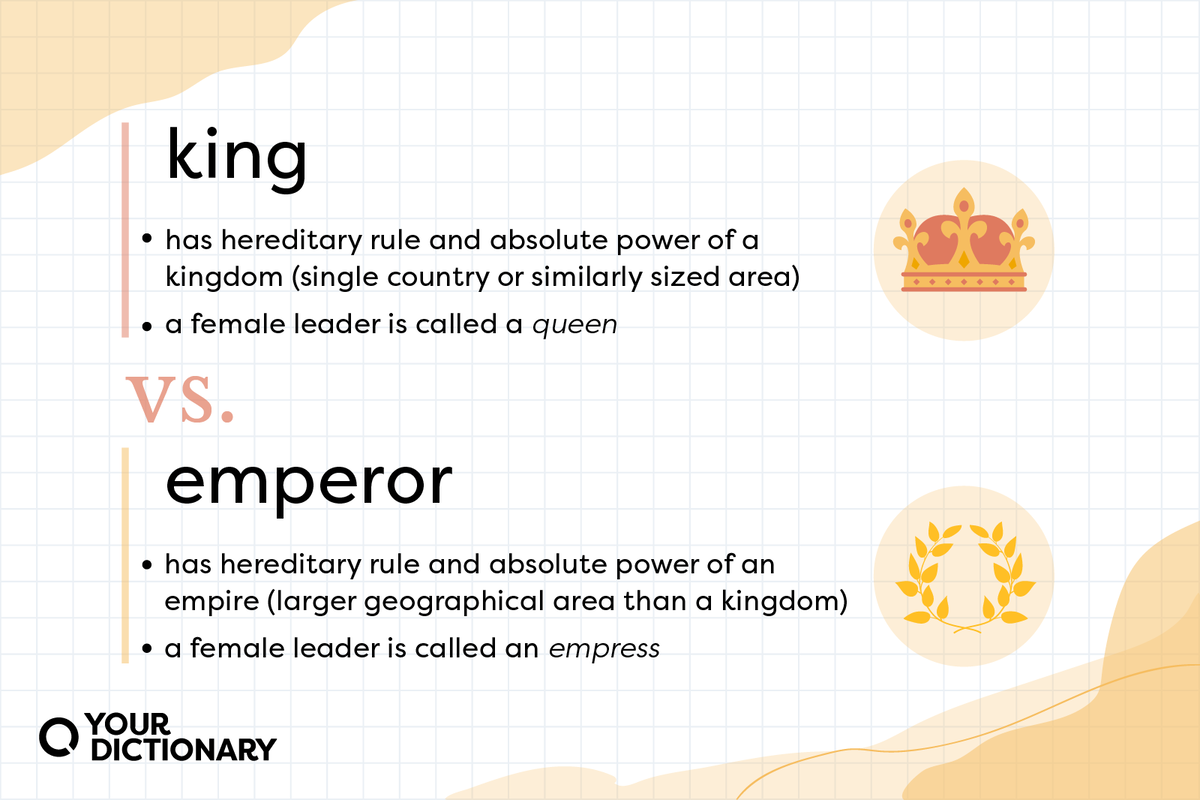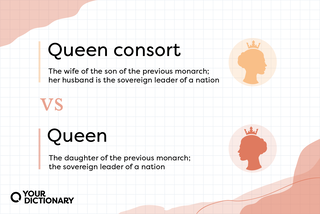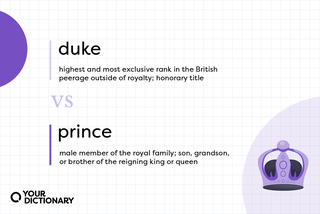
The definition of a ruler (the person, not the measuring tool) is “one who governs.”
Different regions, time periods, and types of governments use different ruler titles, such as king or emperor, to describe the people who hold the power. But what’s the difference between a king and emperor — and which one is more powerful?
What Is a King?
A king is a male monarch who rules a kingdom, which is a geographical region under a monarchy.
Kings usually inherit their power from their parents, who were also king and queen (the female monarch of a kingdom).

Queen vs. Queen Consort: What Does Each Title Mean?
What Is the Son of a King Called?
The son of a king is called a prince, and the daughter of a king is a princess.
The oldest prince, also known as the heir apparent, is next in line to become king (except in countries where the oldest child, regardless of gender, is the heir).

“Duke” vs. “Prince”: What’s the Difference?
Examples of Kings in the 21st Century
Although there aren’t as many monarchies in the world currently as there were several centuries ago, there are still 15 reigning kings today. They include:
- King Charles III (Britain and the British Commonwealth)
- King Philippe (Belgium)
- King Norodom Sihamoni (Cambodia)
- King Abdullah II (Jordan)
- King Letsie III (Lesotho)
- King Mohammed VI (Morocco)
- King Willem-Alexander (Netherlands)
- King Harald V (Norway)
- King Salman bin Abdulaziz Al Saud (Saudi Arabia)
- King Felipe VI (Spain)
- King Carl XVI Gustaf (Sweden)
- King Vajiralongkorn (Thailand)
- King Tupou VI (Tonga)
- King Hamad bin Isa Al Khalifa (Bahrain)
- King Jigme Khesar Namgyel Wangchuck (Bhutan)
What Is an Emperor?
An emperor is a male ruler of an empire, which is a collection of states, countries, or kingdoms. Empires are usually very large geographic areas.
Like kings, most emperors gain their power by hereditary rule from their parents.
What Is the Son of an Emperor Called?
Typically, the son of an emperor is also called a prince, and the daughter of an emperor is called a princess. The wife of an emperor is known as an empress.
Examples of Emperors in the 21st Century
There is only one recognized emperor in the 21st century: Emperor Naruhito of Japan, who rose to power after his father, Emperor Akihito, abdicated the throne in 2019.
Is an Emperor Higher Than a King?
A king and an emperor have different scopes of power, though an emperor’s power is often stronger and more far-reaching. One empire may include several kingdoms, meaning that an emperor may rule over several kings.
Is Anyone Higher Than an Emperor?
In eras where much of the world was ruled by an emperor (including the Medieval world), the only equivalent power to an emperor would be a religious figure — namely, a pope.
But in the government and political world, the emperor is the highest you can get.
Main Differences Between Common Ruler Titles
A chart comparing and contrasting ruler titles can help you see the main differences between each of these terms.
|
Ruler Title |
Source of Power |
Type of Power |
Reach of Power |
|
Chief |
election |
limited power |
clan, tribe, or group |
|
Emperor |
hereditary rule |
absolute power of all covered territory |
empire (large geographical area) |
|
King |
hereditary rule |
absolute power of kingdom |
kingdom/nation (single country or similar sized area) |
|
Pharaoh |
hereditary rule |
absolute power |
Egypt |
|
President |
election |
limited power |
group, republic, or nation |
|
Sultan |
hereditary rule |
absolute power |
a Muslim state/territory |
|
Tsar/Czar |
divine appointment |
absolute power |
Russia or a Slavic nation |
What Is a Chief?
A chief is the highest-ranking leader of a group and can be male or female.
A female who holds this position can also be called a chieftainess or chieftess.
What Is a Pharaoh?
The king of ancient Egypt was called a pharaoh. A pharaoh was a political and religious leader who could be male or female.
What Is a President?
A president of a country is the highest elected or appointed officer or position within an organization or society.
A president is usually only a political leader, and can be a man or a woman.
What Is a Sultan?
A Muslim ruler is known as a sultan. Originally, a sultan was a spiritual authority, but the title was later used for political authority.
Sultana is the female form of sultan.
What Is a Tsar or Czar?
A tsar, or czar, is any of the former emperors of Russia and, at various times, the sovereigns of other Slavic nations. Tsars were political and religious leaders.
Tsarina is the female version of Tsar and czarina is the female version of czar.
Ruler Titles Similar to King and Emperor
While king and emperor have been popular ruler titles throughout history, there are other ruler titles with similar meanings.
- An archduke is a sovereign prince, especially in reference to princes of the former Austrian imperial family.
- A caesar is a Roman emperor after Augustus.
- An emir is any of certain Muslim rulers, princes, or commanders.
- A kaiser is a ruler of the Holy Roman Empire from 962–1806, of Austria from 1804–1918, or of Germany from 1871–1918.
- A shah is any of the former rulers of Iran.